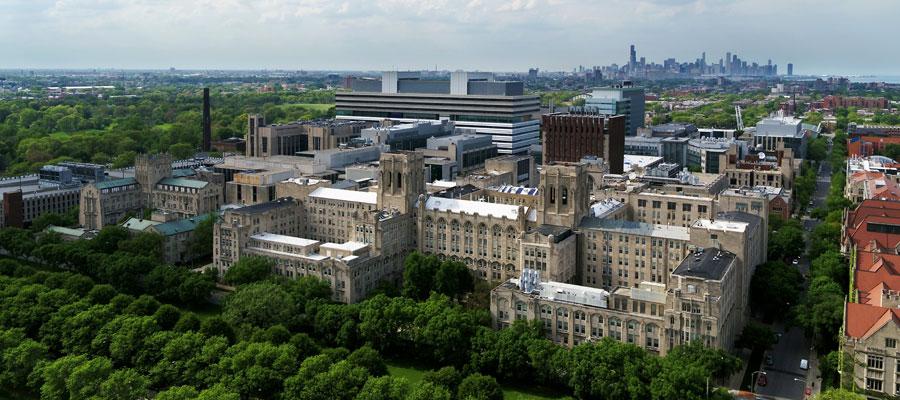The University’s Postbaccalaureate (Postbacc) Premedical Certificate Program is in the midst of its first year of instruction. The program supports current and former University students who plan to attend medical school but lack the prerequisite coursework or seek to strengthen their application.
The Physical Sciences Division launched the program in May 2024 with a cohort of four students. The premedical sciences certificate is awarded upon completion of courses in biology, chemistry, organic chemistry, physics, English, and statistics—all of which are required for a medical school application and tested on the MCAT.
The University’s choice to offer an alternative pathway to medical school is not novel—many peer institutions offer similar programs to aspiring students. For example, Northwestern University’s Post-Bacc Pre-Medicine Certificate Program offers evening and weekend classes spanning a 15- or 21-month period.
According to Liam Schmitt, who earned his certificate from Northwestern in 2023, the typical class size across all programs ranges from 60 to 100 students.
Professor Scott A. Snyder, who serves as the faculty director for the UChicago program and was previously involved in Columbia University’s postbacc premedical program, took a different approach. UChicago’s program scaled down class sizes to “tailor” resources to the student, according to Snyder.
In the current cohort, there are four students who were further separated based on how many premedical classes they had taken as undergraduates. The program can be completed in as little as one year or up to two years, depending on the number of classes already completed. Unlike other postbacc programs, students are not required to retake classes they have previously completed at the University.
“It’s about not having [students] replicate or duplicate coursework they’ve already completed,” Snyder said. “That’s a waste of both time and money.”
Charlotte Lewis (A.B. ’22), who graduated from the College with a degree in sociology, is one of the four students in this year’s cohort. She sought to complete her postbacc in Chicago and was initially set on Northwestern’s program; however, during the application process, Lewis found she didn’t qualify because she had completed too many premedical requirements. She only learned about UChicago’s program “through sheer happenstance.”
Since Lewis only had to complete the physics sequence and the third quarter of organic chemistry, she found a more tailored course load appealing because it allowed her to avoid retaking certain requirements.
Alternatively, Dean Bilenker, another student in the cohort, is taking the entire biology sequence for premedical non-biology majors, the general chemistry sequence, and the organic chemistry sequence. He expects to finish his requirements, totaling to 11 classes, by winter 2026.
Lewis and Bilenker are currently taking classes with undergraduate premedical students, which is different from larger, more traditional postbacc programs. The program also bypasses the challenge of transitioning its students to the institution, as all participants have already completed courses at UChicago.
Another reason to participate in a postbaccalaureate program is to get clinical and research experience. While other postbacc programs tend to provide some structure to find these experiences, students here are encouraged to contact research labs themselves. However, Snyder provides some support to students in finding labs best suited to their profiles: “If I know what someone is interested in, I might recommend talking to these faculty.” Students in the program, akin to undergraduates in the College, have continued access to the Careers in Healthcare advising office.
Lewis has reached out to sociologists in the medical field and leveraged her continued position as a member of the University community to find sociology-related research. Bilenker, meanwhile, plans to take advantage of the proximity to the UChicago hospital system.
“We’ve been provided with opportunities to shadow doctors at UChicago’s hospital, which I personally haven’t done yet but plan to take more advantage of spring quarter and through the summer,” he said.
Bilenker and Lewis plan to apply to medical school in the 2026 and 2027 application cycle, respectively.
Looking ahead, Snyder said that the program is considering offering linkage agreements—formal arrangements with partner institutions that provide select students with preferential admission to medical schools. For example, Northwestern holds linkage agreements with the Northwestern University Feinberg School of Medicine, Rush Medical College, and Rutgers School of Dental Medicine, and Columbia has linkage agreements with schools including New York University School of Medicine, SUNY Downstate Medical Center College of Medicine, and Weill Cornell Medicine. A possible list of partnering schools has not been identified for UChicago’s program.
Snyder also anticipates that interest for the program will grow because it targets UChicago alums interested in pursuing medicine, who see it as a viable way to strengthen a medical school application.
“It’s really about having a strong application. At the core, that’s having strength in coursework that’s relevant, doing well on the MCAT exam, and showing expertise in other areas,” Snyder said.









